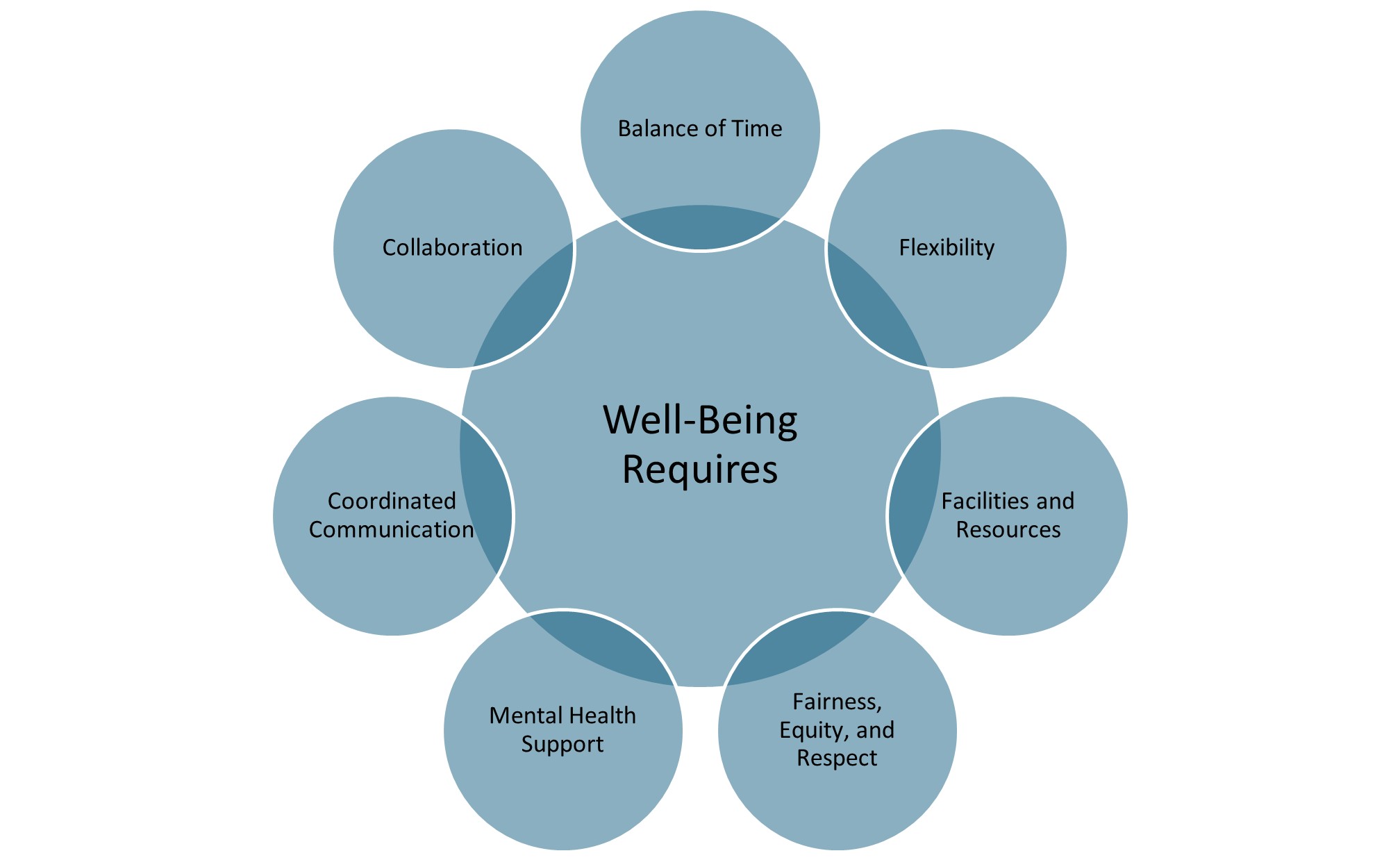Well-Being Survey
Results and Recommendations
The Faculty of Medicine is committed to prioritizing staff and faculty recognition, well-being, and work-life balance, as outlined in the Grounded in Excellence Strategic Plan. Building on past efforts, the Well-Being Advisory Committee has now completed a second Well-Being Survey and prepared a report of the results and recommendations.
Who We Heard From
Respondents to the survey included:
- Faculty – Clinical and MUNFA
- Staff
- Learners – undergraduate, postgraduate, and graduate
What We Heard
This report builds on the themes identified in the 2019 survey, reflecting faculty, staff, and learners’ experiences in the post-pandemic environment. It offers updated recommendations to address emerging needs, organized around seven key themes.

Survey Highlights:
- Balance of Time – Many respondents described excessive workloads, lack of time for breaks, and rigid schedules, all affecting their well-being.
- Mental Health – Burnout and stress were widely reported. Many also felt hesitant to seek mental health support due to stigma or fear of repercussions.
- Workplace Culture & Leadership – Need for inclusive, respectful environments, improved recognition, and strong, supportive leadership.
- Communication Challenges – Respondents highlighted the need for more timely, coordinated and transparent communication.
Additional Findings:
- Structural Barriers
Access to affordable childcare and healthy food options were seen as essential but lacking supports.
There were several key findings unique to specific groups. Below are the highlights:
There is a strong need for protected academic time as educational demands rise without reductions in clinical workload. Communication and last-minute scheduling were also key stress points.
Emphasis on the lack of structured oversight regarding workload distribution. There was a call for process improvements to enhance communication, research efficiency, transparency and support.
Staff strongly valued hybrid work options and reported better well-being with flexible arrangements.
Reported feeling overworked, with limited breaks and control over schedules. Learners highlighted the importance of accessible mental health support, and the importance of timely, clear communication from administration.
Expressed challenges in maintaining a healthy work-life balance due to long hours, 24-hour shifts and unpredictable schedules. They emphasized the importance of mental health support and the need for accessible and confidential services.
Emphasized the need for better processes and clearer, more consistent communication especially around expectations and timelines. Flexibility in academic policies and program structures were also a recurring theme with students emphasizing the need for remote learning options, adaptive schedules, and clear leave policies.
Building on Our Existing Supports
Since the last survey in 2019, the Faculty of Medicine has made many improvements. In particular, improvements to well-being since the 2024 survey include:
- Improving our Spaces
- Faculty, Staff and Learner gym
- Infant feeding room
- Flourishing outdoor spaces
- Supporting our People
- Expansion of professional development offerings for managers and staff.
- Memorial has now introduced a Flexible Work Arrangements Policy, which Medicine staff can access. The new policy includes an option for remote work.
- A Strengths Development Coaching Program for medical learners is being offered through the Office of Learner Well-Being and Success to undergraduate medical learners in the Faculty of Medicine. The program, which was launched in 2023, will welcome its third cohort this fall.
We continue to build on these improvements, and are well positioned to keep moving forward and expand what we offer.
Guiding Our Next Steps
In this next phase, we are turning survey recommendations into action. Input from key stakeholders for faculty, staff, and learners will help guide progress and drive meaningful change.
Stay tuned. We will provide further updates soon!